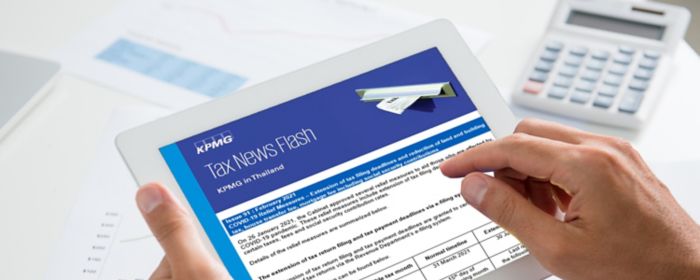From 1 January 2022, financial institutions in Thailand will be required to collect and share financial account and tax information with the Thai Revenue Department (“TRD”) in order to comply with the automatic exchange of information (“AEOI”) requirements set by the Convention on Mutual Administrative Assistance in Tax Matters (“MAAC”), which is a multilateral treaty developed by the OECD and the Council of the European Union.
In June 2020, Thailand signed the OECD MAAC.
The Thai authorities, however, did not ratify the MAAC by the 31 August 2021 deadline, and as a result, Thailand was included in Annex II on the Council of the European Union’s (“EU”) list of non-cooperative “grey list” jurisdictions for tax purposes, which was updated on 5 October 2021.
Thailand has until 31 December 2021 to ratify the MAAC to avoid being included in Annex I as a non-cooperative “black list” country for tax purposes. A jurisdiction on the black list could result in punitive measures being applied to Thai companies operating in EU member states or with EU companies. Punitive measures against blacklisted jurisdictions include denial of deduction of payments made, increased withholding taxes, application of controlled foreign company rules, taxation of dividends, and administrative measures.
The goal of the MAAC is to assist countries with their tax governance and the operation of national tax laws. It also provides a legal framework for the coordination of tax matters and for exchanges of information.
The MAAC is wide in scope and covers a number of forms of information exchange, including:
- the automatic exchange of information;
- the exchange of information on request;
- the spontaneous exchange of information;
- simultaneous tax exemptions;
- tax examinations abroad; and
- other measures related to global tax transparency and exchange efficacy between national tax authorities.
Under the MAAC, there is a requirement for the TRD to implement a legal framework to collect and report taxpayers’ financial and tax information, including, any change in place of residence from one country to another; and ownership of and income from immovable property, salaries, dividends, interest, royalties, or capital gains. This framework will include a requirement for the enactment of domestic tax legislation and it applies to many types of taxes, including taxes on income from profits, capital gains and net wealth.
Thailand has committed to undertake its first exchange of information by 30 September 2023, meaning financial institutions (such as banks, insurance companies or investment companies) in Thailand may be required to collect the relevant information from 1 January 2022.
As a result, financial institutions in Thailand should be required to:
- review the processes and procedures in place for relevant data collection
- consider application forms for new customers to gather any additional information on tax residency as necessary
- review processes of data maintenance and data storage
- keep track of developments in relation to the AEOI and implementation in Thailand.
How can KPMG help?
- By helping you to meet the challenges of reporting
- By supporting your interactions with other regimes, such as FATCA
- By assisting with the evaluation of the obligation to report
- Through live workshops and web-based or in-person training
- Through health checks and operational reviews
Connect with us
- Find office locations kpmg.findOfficeLocations
- kpmg.emailUs
- Social media @ KPMG kpmg.socialMedia



